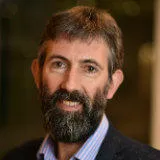Please note: this event has passed
The Arab Spring brought about lasting transformations across the Middle East, radically altering the political and socio-economic fabric of the region.
Sparking into life in Tunisia with the ‘Jasmine Revolution’, a series of protests calling for greater social freedoms quickly spread across the rest of the region in 2011, to Egypt, Morocco, Syria, Libya, and Bahrain among others.
While some grass roots campaigns, such as in Tunisia and Egypt, forced significant changes domestically, other descended into chaos and civil war, like those in Libya, Syria and Yemen.
To mark the 10th anniversary of what has become known as the Arab Spring, the Institute of Middle Eastern Studies and School of Security Studies at King’s College London, are hosting an event that takes a closer look at the legacy of one of the biggest social and political movements ever experienced in the region.
The Arab Spring: 10 Years On takes place on 14 April from 18.00 – 19.30 and will be chaired by Sir Mark Lyall Grant, who was the UK ambassador to the United Nations during the Arab Spring.
The roundtable event will see Professor Jeroen Gunning (KCL), Dr Fatima el-Issawi (KCL/LSE/Essex), Dr Shiraz Maher (KCL), Dr Nina Musgrave (KCL), and Dr Andreas Krieg (KCL), join a roundtable discussion to mark a decade of change, looking at the past and present of the revolutions in different regions of the Middle East, as well as what might lie in store over the next decade.
The panellists will be discussing protests and protest movements in Egypt and Lebanon (Prof Gunning), media and the Arab Spring in north Africa (Dr el-Issawi), Syria (Dr Maher), Palestine (Dr Musgrave), and the Gulf (Dr Krieg). The floor will be opened for questions following the presentations.
This event will take place on Zoom. After you register, you will receive the Zoom link and password.
PANEL
CHAIR
Sir Mark Lyall Grant: Sir Mark qualified as a barrister before joining the diplomatic service in 1980. Over the next 35 years, he served in Pakistan (twice), France, South Africa and the US as well as holding numerous positions in the FCO and Cabinet Office in London. He was High Commissioner to Pakistan (2003-06), Political Director in the FCO (2007-09) and Ambassador to the UN (2009-15). Most recently, he was the National Security Adviser to both David Cameron and then Teresa May. In that position, he was head of the National Security Secretariat in the Cabinet Office and Secretary to the National Security Council.
Dr Fatima el Issawi: Fatima is a Reader in Journalism and Media Studies at the University of Essex. Her research focuses on the intersection between media, politics and conflicts in transitional contexts to democracy in North Africa. She is the principal investigator for the research project ‘Media and Transitions to Democracy: Journalistic Practices in Communicating Conflicts- the Arab Spring’ funded by the British Academy Sustainable Development Programme, looking at media’s impact on communicating political conflicts in post uprisings in North Africa.
Professor Jeroen Gunning: Jeroen is Professor of Middle Eastern Politics and Conflict Studies in the Institute of Middle Eastern Studies at King's College London. He obtained his PhD from the Centre for Middle Eastern and Islamic Studies, Durham University, and was a British Academy Post-Doctoral Fellow at St Antony’s College, Oxford University. His research focuses on political mobilisation with a specific focus on the interplay between Islamist social movements, democratisation, religion, political contestation and violence (both state and non-state) in the Middle East.
Dr Shiraz Maher: Dr Maher is a lecturer in non-state actors within the Department of War Studies and also serves as director of the International Centre for the Study of Radicalisation (ICSR), an academic research centre within the department. He is a historian by training and is primarily interested in the development of Islamic political thought, particularly the use of theology by reactionary and militant movements. Dr Maher also works on the Syrian Civil War, the internationalising of the conflict, and the foreign fighter phenomenon.
Dr Nina Musgrave: Nina’s research focused on Western approaches to Hamas following Hamas’s political participation in 2006. Her most recent research, published in 2017, focused on how Hamas navigated sectarian cleavages in the Middle East following the outbreak of the Syrian civil war. Her latest book, Hamas and the Arab Uprisings: resistance, allegiance, and the departure from Syria is due to be published by I.B. Tauris/Bloomsbury.
Dr Andreas Krieg: Andreas is a lecturer at the School of Security Studies at King’s College London, Royal College of Defence Studies and fellow at the Institute of Middle Eastern Studies. He has spent more than 10 years living, studying and working across the MENA region. Andreas was able to complement his years in the Levant, i.e. Lebanon, Syria, Israel and Palestine, with four years in Qatar where he was involved in delivering a strategic contract between the State of Qatar, the UK Ministry of Defence and King’s College London. In his research Andreas has focused on a variety of different subjects relating to the academic discipline of Security Studies in the geographic context of the MENA region. In particular, Andreas looks at violent non-state actors in the MENA region and their competition with state authority to provide communal resilience.




